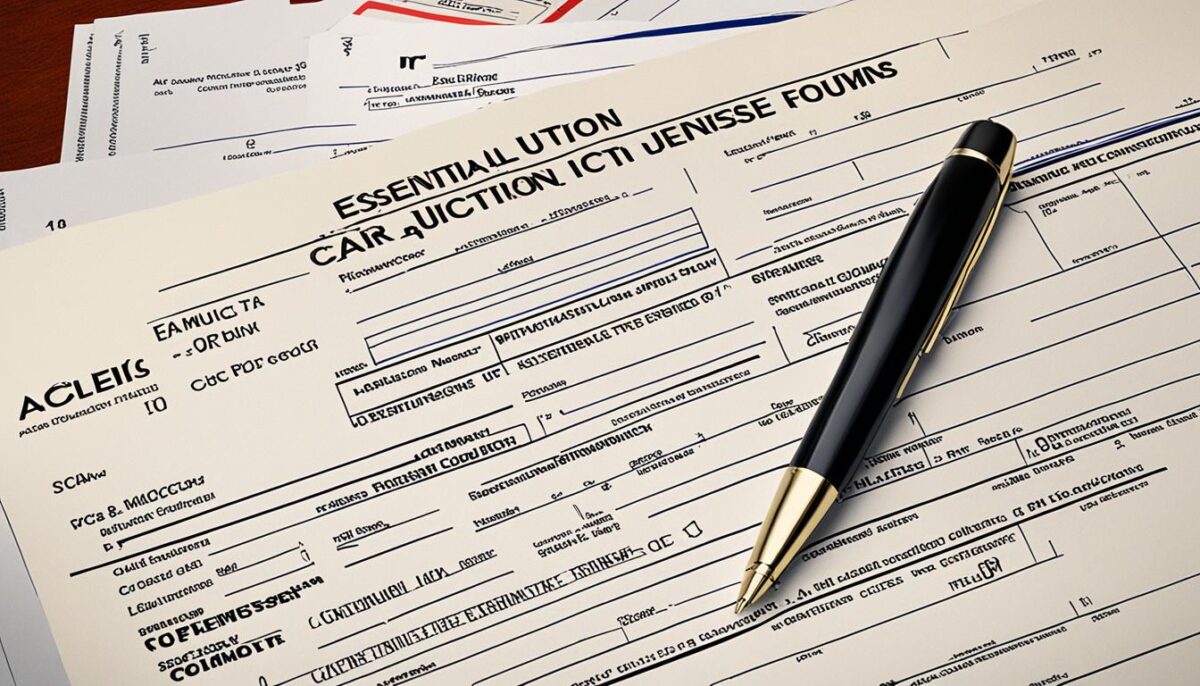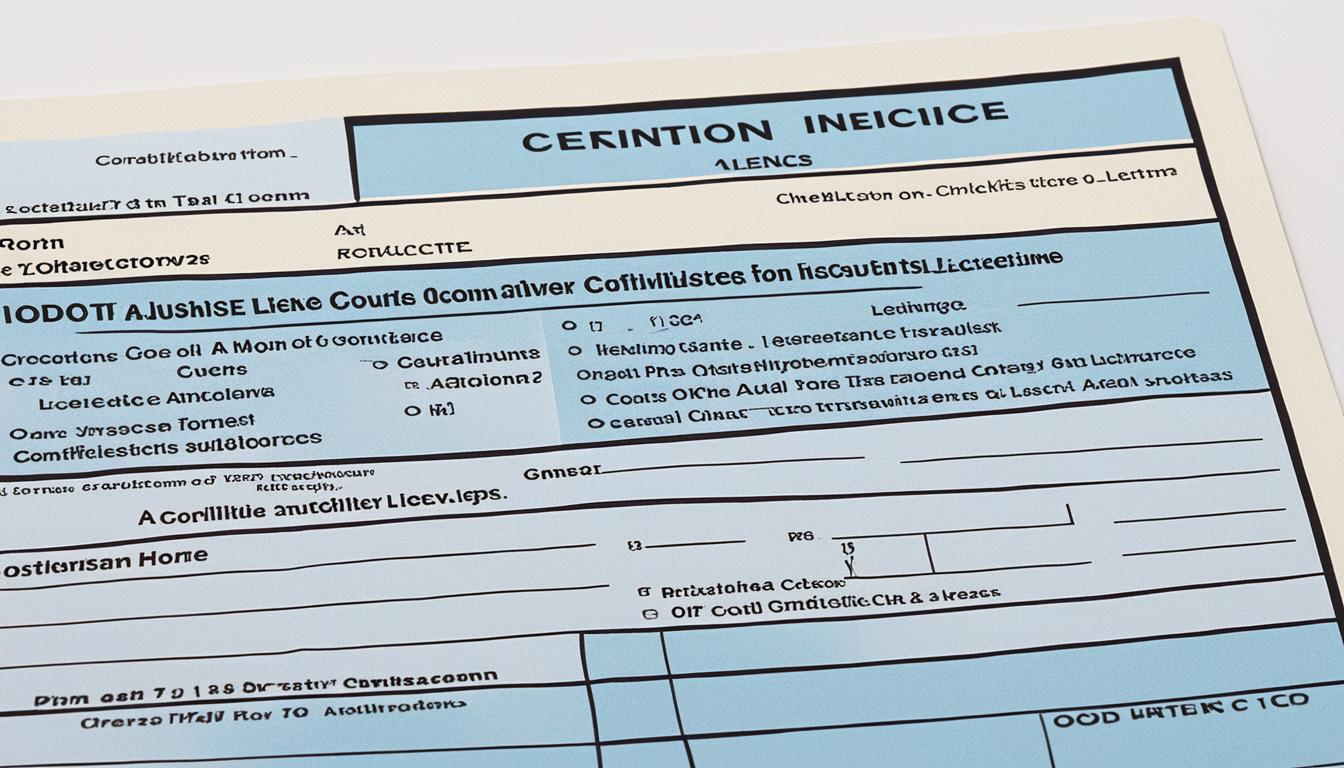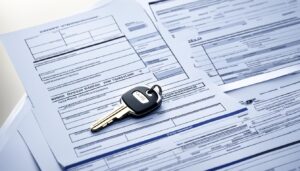In this comprehensive guide, we will explore the necessary steps and requirements to obtain a car auction license. Whether you’re aspiring to start your own auto auction business or want to participate in car auctions, understanding the licensing process is crucial. We’ll cover the types of car auction licenses, eligibility criteria, the application process, required documentation, and tips for maintaining and renewing your license.
Navigating the world of car auctions can be an exciting and lucrative endeavor, but it requires a proper understanding of the licensing requirements. By following the necessary steps, you can ensure that your car auction business or participation is compliant with local and state regulations. Let’s dive in and discover what you need to get a car auction license.
Understanding the Licensing Requirements for Car Auctions
To operate a successful car auction business, you’ll need to obtain the appropriate license. The specific type of license required can vary depending on your location and the scope of your operations. In this section, we’ll examine the different types of car auction licenses and explore the eligibility criteria for each.
Types of Car Auction Licenses
The most common types of car auction licenses include:
- Dealer Auction License: This license allows you to conduct wholesale auctions, where only licensed car dealers can participate and purchase vehicles.
- Wholesaler Auction License: With this license, you can host auctions open to both licensed dealers and the general public, providing a platform for wholesale vehicle transactions.
- Public Auction License: A public auction license enables you to organize auctions that are open to the general public, where both individuals and dealers can participate and bid on vehicles.
Eligibility Criteria for Car Auction Licenses
The eligibility criteria for obtaining a car auction license can vary widely across different states and jurisdictions. However, some common requirements may include:
- Educational Qualifications: Some states may require you to have a certain level of education or professional experience in the automotive industry.
- Financial Stability: You may need to demonstrate financial stability, such as having a minimum amount of capital or assets, to ensure the long-term viability of your car auction business.
- Background Checks: Regulatory authorities may conduct background checks to ensure your business and key personnel have no history of legal or ethical violations.
- Facility Requirements: The physical location of your car auction facility may need to meet specific zoning, safety, and operational standards set by local authorities.
It’s essential to thoroughly research the licensing requirements in your state or jurisdiction to ensure you meet all the necessary qualifications and comply with the relevant regulations. Navigating the licensing process can be complex, but understanding the key requirements is crucial for establishing a legitimate and successful car auction business.

Need Get Car Auction License: Navigating the Application Process
Obtaining a car auction license is a crucial step for aspiring auto enthusiasts and entrepreneurs looking to venture into the dynamic world of car auctions. Whether you’re interested in how to apply for a car auction license or seeking to understand the steps to get a car auction license, the application process can seem daunting at first. However, with a clear understanding of the car auction license application process, you’ll be better equipped to navigate the administrative requirements and secure your license successfully.
The first step in the car auction license application process is to gather the necessary documentation. This typically includes your business registration, financial statements, and proof of relevant experience in the automotive industry. By compiling these essential materials upfront, you’ll be well on your way to demonstrating your qualifications and meeting the requirements to obtain a car auction license.
- Gather your business registration documents, such as your articles of incorporation or state-issued business license.
- Prepare your financial statements, including income statements and balance sheets, to showcase the financial stability of your car auction operation.
- Provide proof of your experience in the automotive industry, such as previous employment, certifications, or a detailed business plan outlining your car auction expertise.
Once you’ve assembled the required documentation, the next step in the car auction license application process is to submit your application and pay the associated fees. The specific fees can vary depending on your state or local jurisdiction, so be sure to research the applicable requirements thoroughly. Additionally, be mindful of the timelines involved in the application review process, as it may take several weeks or even months to receive a decision on your car auction license.
By understanding the step-by-step car auction license application process, you’ll be better positioned to navigate the administrative hurdles and successfully secure the necessary licensing to operate your car auction business. Remember, the key to a smooth application process is to prepare the required documentation, familiarize yourself with the fees and timelines, and be persistent in your pursuit of the car auction license that will unlock new opportunities in the dynamic automotive marketplace.
“Obtaining a car auction license is a critical milestone for any aspiring auto entrepreneur. By thoroughly understanding the application process, you can position your business for long-term success in the exciting world of car auctions.”
Essential Documents and Fees Involved
Applying for a car auction license requires submitting various documents and paying applicable fees. Understanding the necessary documentation and associated costs can help ensure a smooth application process.
Necessary Documentation for Car Auction Licenses
The documents needed for a car auction license application typically include:
- Business registration documents, such as a certificate of incorporation or business license
- Tax forms, including the previous year’s federal and state tax returns
- Financial records, such as bank statements, profit and loss statements, and balance sheets
- Proof of relevant experience or qualifications, such as certificates or licenses related to the automotive industry
- Identification documents for the business owner and key personnel, such as driver’s licenses or passports
These documents help regulatory authorities verify the applicant’s business status, financial stability, and industry expertise, ensuring compliance with local and state regulations.
Fees for Car Auction Licenses
In addition to the required documentation, applicants for a car auction license must also pay various fees. These fees can vary depending on the jurisdiction, but typically include:
- Application fee: This one-time fee covers the cost of processing the license application.
- License fee: The fee for obtaining the actual car auction license, which may be an annual or multi-year cost.
- Renewal fee: If the license needs to be renewed periodically, there may be an additional renewal fee.
- Background check or fingerprinting fees: Some states may require a background check or fingerprinting, which can incur additional costs.
It’s important to budget for these fees and factor them into the overall cost of obtaining and maintaining a car auction license. By being prepared, you can ensure a seamless application process and ongoing compliance with regulatory requirements.

Tips for Maintaining and Renewing Your Car Auction License
Securing a car auction license is just the first step. To ensure the ongoing success and legality of your auto auction business, it’s essential to understand the requirements for maintaining and renewing your license. We’ll offer valuable tips on staying compliant with regulations, such as submitting annual reports, updating business information, and meeting any continuing education or training requirements.
By following these guidelines, you can avoid potential pitfalls and keep your car auction license in good standing. Renewing your car auction license on time and maintaining accurate records is crucial to avoid penalties or suspension of your license. Additionally, regularly reviewing and updating your business information, such as contact details and ownership structure, can help streamline the renewal process.
Moreover, staying informed about any changes in the regulatory landscape for car auctions is key. Attending industry events, networking with other auction professionals, and consulting with legal experts can help you navigate the evolving requirements for maintaining your car auction license. With a proactive approach to compliance, you can ensure your business remains in compliance and poised for continued growth.




